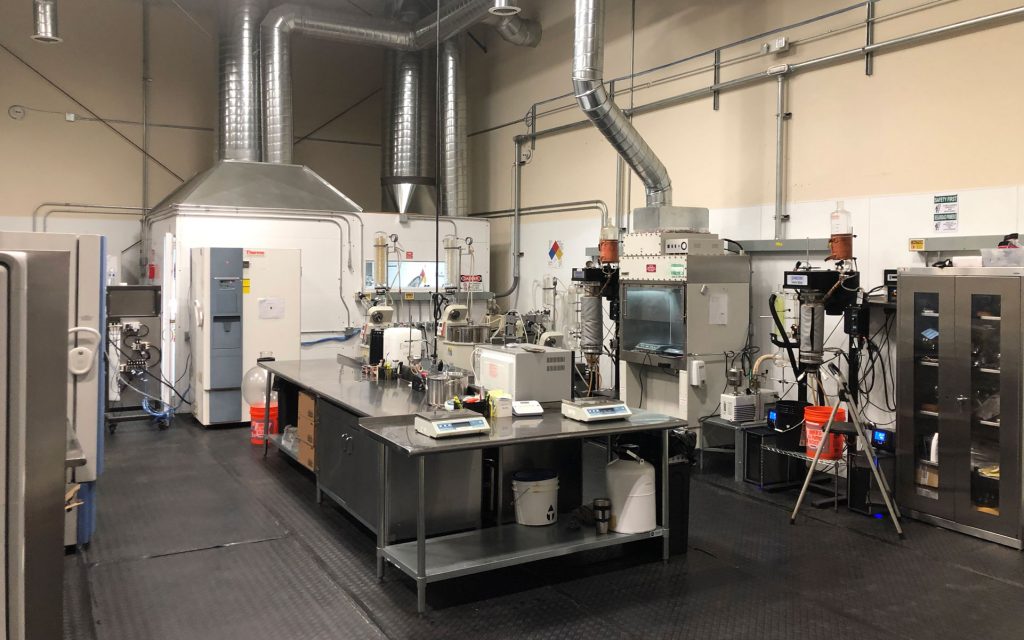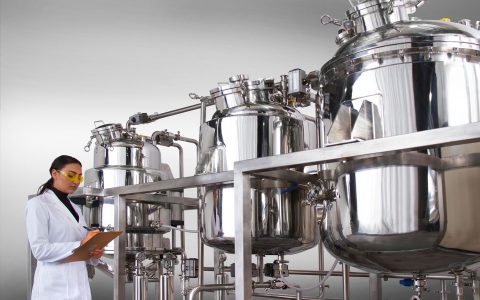This article is presented by Capna Systems, an industry-leading extraction equipment manufacturer and research facility based in southern California whose mission is to research and develop safe, innovative ethanol extraction technologies for the cannabis industry.
Since 2014 Capna Systems has been providing cannabis processors across North America with ethanol extraction equipment, and during those years, their team has learned more than a few lessons about this rapidly evolving industry.
We sat down with CEO Gene Galyuk to discuss the obstacles and opportunities facing cannabis extractors today, common mistakes he sees from new entrants to the market, and his advice for building out—or scaling up—a cannabis extraction facility.
 Capna Systems CEO Gene Galyuk (Courtesy of Capna Systems)
Capna Systems CEO Gene Galyuk (Courtesy of Capna Systems)
What are some of the trends you see developing in the extraction industry, and what do those trends mean for processors and consumers?
The main trend is really fast growth we’re seeing in cannabis extraction. As an equipment manufacturer, we’re seeing clear effects of that as processors scale up their operations and start new facilities with more capacity than we’ve previously seen. Just over the past year, we’ve seen demand for lab-style extraction set-ups tail off and be replaced by demand for more machines that can process at an industrial scale.
Another clear trend we see in the extraction industry is that more and more processors are switching to ethanol extraction technology because of how efficient it is for extraction at scale. When we first came to market, we were one of just two or three manufacturers developing equipment for ethanol extraction equipment. These days, we’re seeing a lot more manufacturers introducing ethanol extraction equipment to their product lines, and that is being driven by demand from processors.
With the industry growing so quickly, what are some of the big obstacles you see processors encounter as they start new businesses or scale existing ones?
At the moment, one of the biggest hurdles for processors is probably compliance. We’re based in California, where processors have to be in compliance with the California Department of Public Health, OSHA, CAL EPA, and CAL FIRE. And that’s just at the state level, before you get into things like local and municipal agencies, where even neighboring cities and counties can have pretty different sets of rules.
How do you see ethanol extraction fitting into cannabis extraction going forward?
We think ethanol extraction is really well-placed to continue growing in popularity. In particular, we’re seeing big operations embrace ethanol extraction because it scales to industrial production levels really well. For operations that are processing thousands of pounds of cannabis every day, keeping that much compressed gas like butane on site can get complicated and expensive. And depending on where you are operating, it can make things like zoning and permitting a challenge as well.
There’s also the element of speed and efficiency to consider when extracting at scale. Because ethanol extracts don’t need weatherized, processors can skip a step that’s involved in other extraction methods. That’s a time-saver whatever scale you’re operating on, and it can make an especially big difference at a large operation.
You mentioned those kinds of compliance issues earlier. Why are these so important for processors to keep in mind?
The lack of consistency in regulations makes them a common stumbling block for people who are new to the industry. We’ve worked with clients operating under regulatory strictures in different cities and states, and we can confidently say that no two sets of regulations are the same. As a result, we all too often see clients experiencing production delays or productivity losses because they didn’t keep an eye on these regulations.
If you could give one piece of advice to people looking to get into the cannabis extraction industry, what would it be?
Honestly, the biggest rookie mistake we see is people who are entering this one without really doing their homework. These are folks who are often well funded and have been successful in other industries, and they assume that making money in cannabis is just like making money in any other industry. That’s just not the case.
 (Courtesy of Capna Systems)
(Courtesy of Capna Systems)
Where’s one place you really see that lack of homework?
These days, we’re seeing a lot of people who are overprojecting, and as a result, they’re overbuying equipment. We’re having conversations with people who want to buy 10 of our biggest systems, which would allow them to process ten thousand pounds of cannabis a day. But too often, they’re not asking where those pounds are coming from or what their distribution plan is for the resulting extract. And, and when we ask them questions like this, it’s often clear a lot of the new entrants to the industry they don’t really have those plans that plan in place.
Using the right equipment is a really important part of a success in cannabis extraction. But you also need to have an understanding of the industry, a realistic plan, and relationships with the growers and other partners that can help you put that plan into action.
You’re trying to talk people into buying less equipment from you? That seems a little counterintuitive.
What we want to do is sell people the equipment they need to be successful. If someone buys a bunch of gear from us that it turns out they can’t use effectively, that’s not a win for us, because that’s not good for the industry. We want to see our clients thrive, and see this industry thrive, and sometimes that means talking a customer down from an order that’s…let’s call it overly ambitious.
It sounds like educating and supporting customers is becoming more of a priority for Capna internally?
Absolutely. One of the things we’ve developed recently is the Capna Concierge team, which is made up of staffers who are trained to provide all necessary information to local agencies to assist our customers with the approval process of our equipment. They won’t go to city hall and fill out the paperwork for our customers, but they will help to facilitate communication with inspectors and fire marshals and provide information and supporting documents to make sure that the Capna Systems equipment we install are fully in compliance.













